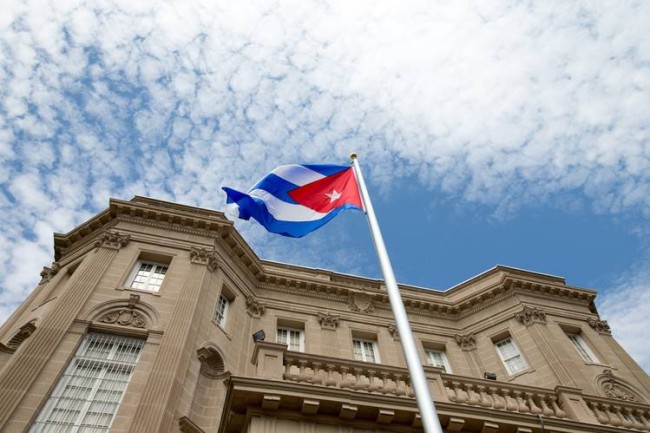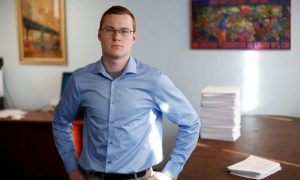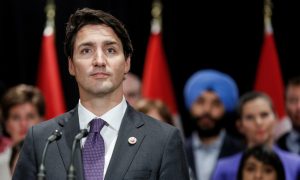WASHINGTON — Throngs of demonstrators gathered Monday to witness the raising of the Cuban flag over Cuba’s embassy, the first time it has flown here since the U.S. broke off diplomatic relations with the communist country 54 years ago.
As American and Cuban diplomats stood side by side, three Cuban guards in white uniforms marched out of the building, attached the flag to a recently constructed flag pole and raised it above Washington’s 16th Street, just 2 miles north of the White House, to mark the formal re-opening of the embassy.
The move signaled the latest, and most visible, step toward normal ties between the United States and Cuba. President Obama and Cuban President Raúl Castro announced in December that the two countries would end their five-decade diplomatic freeze.
While the U.S. Embassy in Havana also opened Monday, the U.S. State Department said it won’t host a similar flag-raising ceremony in the Cuban capital until Aug. 14, when Secretary of State John Kerry plans to attend. In the meantime, the department on Monday added a Cuban flag in a hall inside its headquarters along with flags from every other country that has diplomatic relations with the U.S.
After the ceremony, Kerry met with Cuban Foreign Minister Bruno Rodriguez at the State Department. Kerry said that although the two nations differ on basic issues ranging from human rights to political systems, both will be better served by engagement rather than estrangement.
“We are determined to live as good neighbors,” Kerry said.
Rodriguez listed several of his government’s long-standing requests, such as returning the U.S. Naval base in Guantanamo Bay and ending the U.S. economic embargo, which Congress has shown little inclination to lift anytime soon. Also crucial is “compensation for our citizens for human and economic damages,” he said. But he said Monday’s events represented a first step toward resolving those issues.
“We can both cooperate and coexist in a civilized way,” Rodriguez said.
Both men alternated between speaking in English and Spanish.
Monday’s events at the Cuban Embassy drew pro and anti-Cuban protests. Chants of “Viva Cuba” and “Viva Fidel” competed against those of “Free Cuba” and “Cuba, forever socialist.” One man was arrested after throwing a red paint bomb into a crowd.
“I am here to see a day of infamy,” shouted Frank Calzon, executive director of the Center for a Free Cuba, a Washington group that opposes any opening with Cuba.
Another protester, Aimel Rios, said the new relationship will only hurt the Cuban people if the U.S. does not force human rights changes on the island, which stands to receive a financial windfall from increased American trade and travel.
“I came here to raise awareness about systematic human rights violations in Cuba,” said Rios, 31, who left Cuba for the U.S. in 1999 as a political refugee and is now a human rights worker. “If people are not free to carry out a strike, then how could they defend themselves against human rights violations?”
Former Florida governor Jeb Bush, a leading Republican presidential candidate, tweeted that engaging politically with Cuba “will only serve to further legitimize (the) repressive regime.” Sen. Bob Menendez, D-N.J., said that diplomatic relations with the U.S. “are a privilege and must be earned,” something the Cuban government has failed to do by imprisoning 2,800 political activists this year alone.
Sen. Patrick Leahy, D-Vt., countered that if the U.S. only worked with countries it agrees with completely, “we would have to close half of our current embassies.”
“That is now why you have embassies,” said Leahy, who attended Monday’s flag-raising. “It is to protect the interests of the United States and of American citizens and to defend our ideals around the world.”
Outside the Cuban Embassy, college counselor Evelyn González said the U.S. should never have broken relations with Cuba in the first place.
The United States “should respect other countries’ sovereignty,” said Gonzalez, a Salvadoran-American. “The people in government of Cuba want to normalize relations. They will benefit because they have been strangled.”
James Williams, president of Engage Cuba, a non-profit group that supports normalized relations, said Congress should now move to remove the economic embargo against Cuba.
“It is time to allow Americans to be our best ambassadors by opening the doors to travel,” he said. “And, it is time to allow American businesses to compete in a market of 11 million people just 90 miles off our coast.”
In Miami, Cuban-American members of Congress said they would try to block funding for adding personnel at the embassy in Havana, stop the appointment of an ambassador and find ways to roll back normalization.
Rep. Ileana Ros-Lehtinen, R-Fla., who was born in Havana, cited continued political oppression in Cuba and said the government there will be able to use the embassy in Washington as a “spy hub.”
“Today is a sad day for national security and human rights around the world,” she said.
Source: USA Today















































































































































































































































![[Video] Chicago Police Officers Caught On Video Telling Two Black Men "We Kill Mother F**kers"](https://earhustle411.com/wp-content/uploads/2018/07/evil-cop-3-300x180.jpg)
![[Video] Chicago Police Officers Caught On Video Telling Two Black Men "We Kill Mother F**kers"](https://earhustle411.com/wp-content/uploads/2018/07/evil-cop-3-80x80.jpg)












![[Video] White Woman Calls The Cops On Black Real Estate Investor, Cops Threaten To Arrest Her For Harassing Him](https://earhustle411.com/wp-content/uploads/2018/05/nosy-neighbor-300x180.png)
![[Video] White Woman Calls The Cops On Black Real Estate Investor, Cops Threaten To Arrest Her For Harassing Him](https://earhustle411.com/wp-content/uploads/2018/05/nosy-neighbor-80x80.png)


![White Scientist Says The Black Community Is Being Targeted By The Medical System, They Are Deliberatly Being Poisoned [Video]](https://earhustle411.com/wp-content/uploads/2016/05/mike-adams-300x180.jpg)
![White Scientist Says The Black Community Is Being Targeted By The Medical System, They Are Deliberatly Being Poisoned [Video]](https://earhustle411.com/wp-content/uploads/2016/05/mike-adams-80x80.jpg)








![Teenage Girl Shot In Her Stomach Three Times But Took Time To Post To Facebook [ Video]](https://earhustle411.com/wp-content/uploads/2016/02/Gangster-chick-300x180.jpg)
![Teenage Girl Shot In Her Stomach Three Times But Took Time To Post To Facebook [ Video]](https://earhustle411.com/wp-content/uploads/2016/02/Gangster-chick-80x80.jpg)







